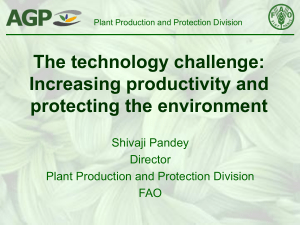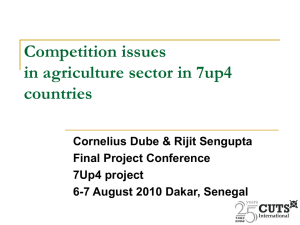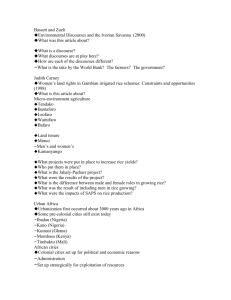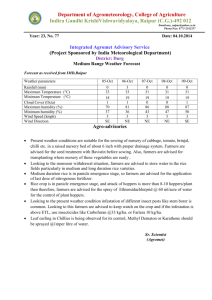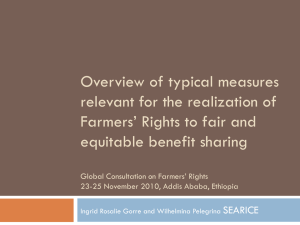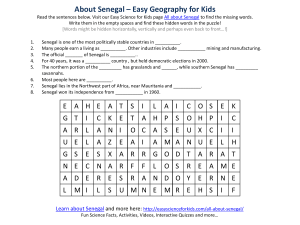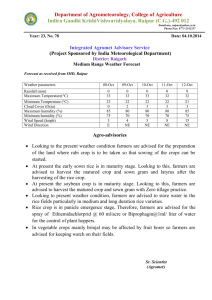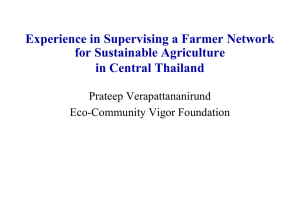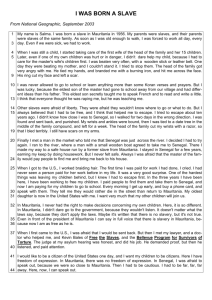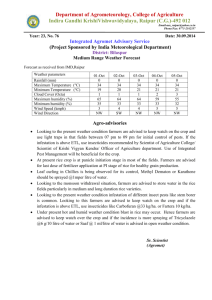Genetic resource center in the north of Senegal The Eco
advertisement
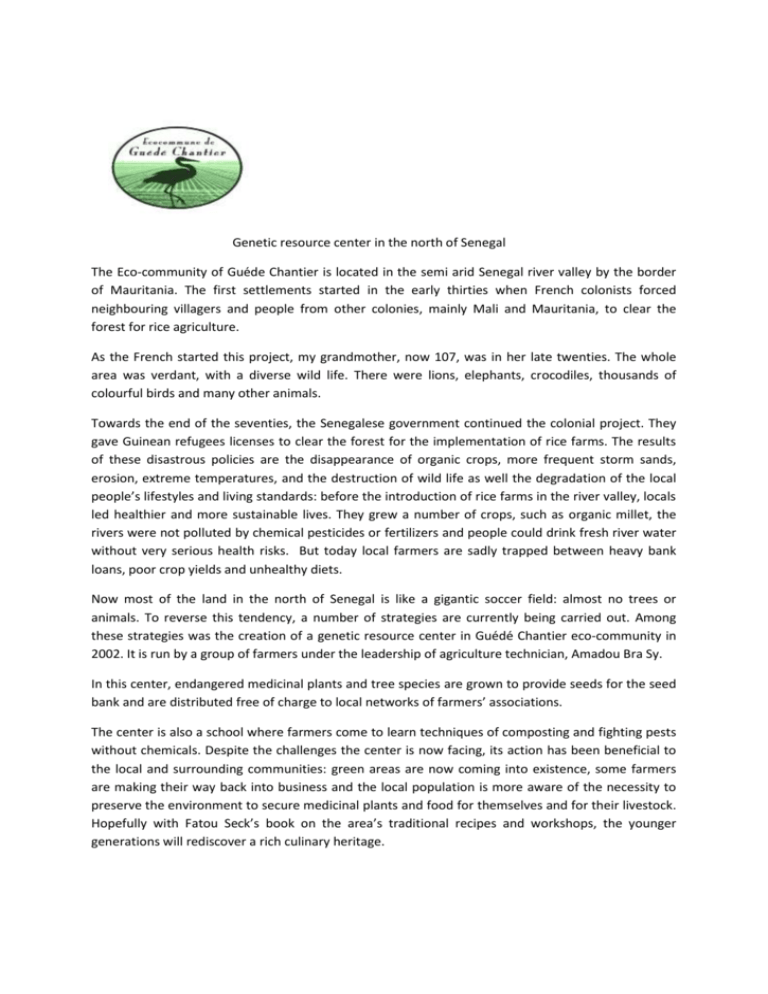
Genetic resource center in the north of Senegal The Eco-community of Guéde Chantier is located in the semi arid Senegal river valley by the border of Mauritania. The first settlements started in the early thirties when French colonists forced neighbouring villagers and people from other colonies, mainly Mali and Mauritania, to clear the forest for rice agriculture. As the French started this project, my grandmother, now 107, was in her late twenties. The whole area was verdant, with a diverse wild life. There were lions, elephants, crocodiles, thousands of colourful birds and many other animals. Towards the end of the seventies, the Senegalese government continued the colonial project. They gave Guinean refugees licenses to clear the forest for the implementation of rice farms. The results of these disastrous policies are the disappearance of organic crops, more frequent storm sands, erosion, extreme temperatures, and the destruction of wild life as well the degradation of the local people’s lifestyles and living standards: before the introduction of rice farms in the river valley, locals led healthier and more sustainable lives. They grew a number of crops, such as organic millet, the rivers were not polluted by chemical pesticides or fertilizers and people could drink fresh river water without very serious health risks. But today local farmers are sadly trapped between heavy bank loans, poor crop yields and unhealthy diets. Now most of the land in the north of Senegal is like a gigantic soccer field: almost no trees or animals. To reverse this tendency, a number of strategies are currently being carried out. Among these strategies was the creation of a genetic resource center in Guédé Chantier eco-community in 2002. It is run by a group of farmers under the leadership of agriculture technician, Amadou Bra Sy. In this center, endangered medicinal plants and tree species are grown to provide seeds for the seed bank and are distributed free of charge to local networks of farmers’ associations. The center is also a school where farmers come to learn techniques of composting and fighting pests without chemicals. Despite the challenges the center is now facing, its action has been beneficial to the local and surrounding communities: green areas are now coming into existence, some farmers are making their way back into business and the local population is more aware of the necessity to preserve the environment to secure medicinal plants and food for themselves and for their livestock. Hopefully with Fatou Seck’s book on the area’s traditional recipes and workshops, the younger generations will rediscover a rich culinary heritage. Amadou Bra Sy, founder of the Genetic resource center

